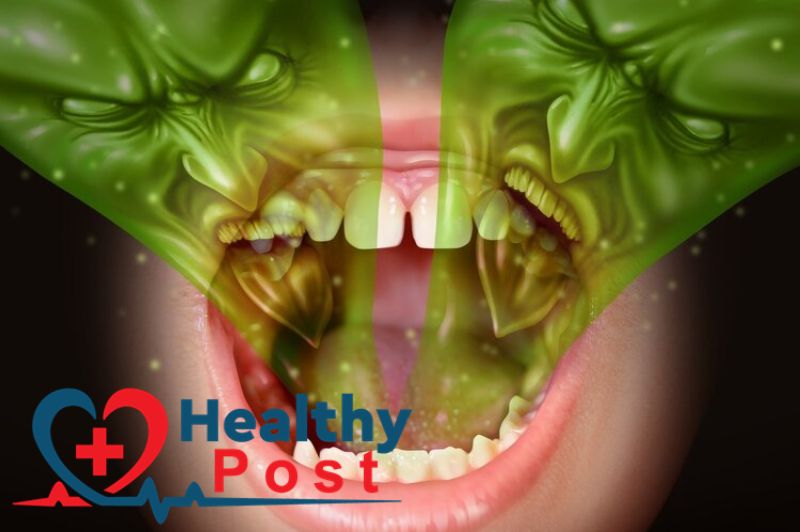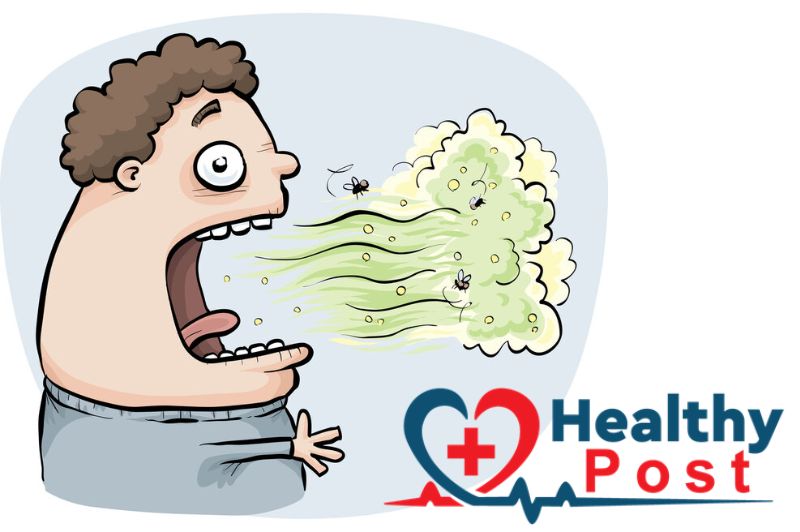Bad breath may seem like a small problem, but it actually brings a lot of inconvenience to people’s lives, affects social interaction, makes them afraid to speak to others, and even makes them feel inferior.
During COVID-19, everyone was wearing masks. People with bad smell experienced the unpleasant reality of smelling their own smell. If you also want to get rid of bad breath, you must first find the “reasons” for it.

What Causes Bad Breath?
- Oral health affects 80%-90% of bad breath., and Bacteria in the mouth cause the most important bad breath. For healthy people, most bad smell is caused by bad habits such as not brushing teeth and not rinsing mouth after meals. Our mouth needs to chew a lot of food every day. As the first digestive organ, the mouth contains various microorganisms. If we do not pay attention to oral hygiene, food stays in the mouth, creating a ‘storage room’ for bacteria and causing bad breath.
Foods That Cause Bad Smell
There are many foods in life that can easily cause bad smell, such as foods containing onions and garlic, as well as onions, leeks, coriander, stinky tofu, etc. These foods themselves have special odors, which can cause bad smellafter eating. However, bad breath caused by food is temporary, and the degree of bad breath will gradually decrease over time until it disappears.
Impact of Constipation on Bad Breath
Longer constipation will prevent harmful substances produced in the body from being excreted in time, thus causing bad breath problems.
How Oral Diseases Cause Bad smell
The pathogens of periodontal disease can usually be found in the subgingival plaque of patients with halitosis, so the proportion of people with periodontal disease suffering from halitosis is very high. If there are diseases such as periodontitis, caries, gingivitis, xerostomia, etc. in the mouth, it is easy for bacteria to grow in the mouth. In particular, anaerobic bacteria will produce sulfides with a corrupt smell when decomposed, thus causing bad breath.

How Digestive Disorders Cause Bad Smell
For example, diseases such as chronic gastritis, peptic ulcer, and functional dyspepsia may cause bad breath. In addition, studies have found that the probability of long-term bad breath in patients infected with Helicobacter pylori is significantly higher than that of uninfected people. Infection with Helicobacter pylori can cause gastrointestinal ulcers, and food retention is decomposed by bacteria to produce smelly gases.
4 ways to get rid of bad breath
- Pay attention to oral hygiene. Brush your teeth carefully every morning and evening. When brushing your teeth, you should not only clean your teeth, but also brush the tongue coating on your tongue. When brushing your teeth, you can make the toothpaste into foam and keep it in your mouth for a while to achieve a better antibacterial effect. You can also use dental floss to remove food particles lodged between your teeth, and getting into the habit of rinsing your mouth after meals can also help prevent bad breath.
Visit your dentist regularly
When dental plaque and tartar reach a certain level, they are likely to cause oral diseases such as periodontitis and gingivitis, which are important factors that cause bad breath. It is best to see a dentist every six months, clean your teeth regularly, remove tartar, and treat caries in time.
Treating the Root Causes of Bad Smell
If the bad smellis caused by disease, such as gastrointestinal disease accompanied by bad smell, it is best to go to the hospital to check whether you are infected with Helicobacter pylori. After receiving regular treatment, the symptoms of bad breath will be alleviated accordingly.
Diet Tips for Fresh Breath
Pay attention to your diet at ordinary times. Don’t eat too much greasy or heavy-tasting food. Eat light food and eat more foods that can freshen your breath. Eat more vegetables and fruits, because vegetables and fruits contain a lot of fiber, which can help digestion, relieve constipation problems, and can effectively treat bad smellcaused by diet.
How to test for bad breath yourself?
- Smell the saliva. Wash your hands thoroughly with clean water to leave no smell, then lick the back of your hands with your tongue. After the saliva is dry, smell the back of your hands to see if there is a strong odor. If there is, it means you have bad smell.
Wearing a mask is also an easy way to detect whether you have bad smell, because the breath you exhale is easier to smell. If it smells strongly, it means you have bad breath.

Conclusion
In short, if you find that you have bad breath, you must first find out the cause of the bad smellso that you can prescribe the right medicine and treat it in time.


